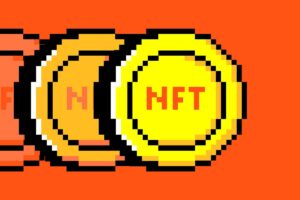Why Are These Stablecoins Being Delisted by Coinbase?

Crypto exchange Coinbase has announced it will remove all stablecoins from its European platform that do not meet the EU MiCA regulations. This decision has been made in accordance with the EU’s new regulatory approach.
The exchange has set very tough rules for the stablecoin issuers of stablecoins and cryptocurrency exchanges within the European Economic Area (EEA).
A Coinbase representative said,
“We are fundamentally a compliant company, and our plan is to discontinue the offering of services to the EEA customers for stablecoins that do not meet MiCA requirements by December 30, 2024.”
– Advertisement –
The decision comes as Coinbase prepares to conform with the EU’s enhanced supervision. Other already led to similar actions by other exchanges.
MiCA Requirements Push for Compliance
The MiCA regulation is expected to be fully adopted before the end of the year. All issuers of stablecoins must have an e-money license in at least one EU country. This rule came to effect on 30th June for stablecoin issuers.
It is expected to enhance the stability and transparency of the market. Such platforms as Coinbase, OKX, Bitstamp, and Uphold are in the process of aligning with Markets in Crypto-Assets (MiCA).
Tether Holdings Ltd., the issuer of the world’s largest stablecoin USDT, may be delisted from Coinbase if it does not receive the appropriate license. As reported earlier by The Coin Republic, speculation about Coinbase delisting Tether (USDT) has been stirring within the crypto community.
New Opportunities for Compliant Stablecoins
In order to support the affected users, Coinbase has decided to enable EEA users to swap their stablecoins to the MiCA-compliant assets such as USDC. Coinbase has stated that it will give more information on the matter next month.
Circle, the issuer of USDC, is among the first stablecoin issuers to have met all the MiCA criteria. This gives it a strategic advantage to claim a bigger piece of the European market.
MiCA provides a regulatory framework for a more transparent and protective environment for consumers. MiCA-compliant stablecoins like USDC could see their demand rise as they become the preferred options for users in the EU.
Increased Competition in the Stablecoin Market
Due to the emergence of MiCA, many firms have started looking for business opportunities in the stablecoin segment. Fintech firms such as Revolut and Robinhood are also planning to issue their own stablecoins. Fintech company PayPal ventured into the stablecoin market recently.
*ROBINHOOD, REVOLUT SAID TO EXPLORE LAUNCHING OWN STABLECOINS: BBG
— Tree News (@News_Of_Alpha) September 26, 2024
However, the MiCA regulations require that stablecoin issuers must hold stable reserves which can be quite demanding for the new market players. To this end, companies planning to issue their own stablecoins will be subjected to these rules.
At least 60% of reserves have to be held in cash while having proper disclosure standards. Such guidance could lead to more firms coming into the space and would also increase consumer trust in stablecoin-backed assets.
MiCA’s Impact on Crypto Firms in the EEA
While MiCA aims to harmonize crypto regulations across the EU, some experts believe it may lead to a consolidation of crypto firms in the region. Smaller companies may find it difficult to meet the new compliance standards, potentially driving them out of the market or pushing them to regions with more favorable regulations, such as the Middle East.
Despite this potential challenge for smaller firms, major financial institutions like Societe Generale are actively preparing their digital asset offerings to align with MiCA.
Societe Generale has partnered with Bitpanda to launch a euro-pegged stablecoin, EUR CoinVertible (EURCV), designed to meet MiCA’s standards. This partnership aims to make stablecoins a core part of the European financial ecosystem and reflects the interest of traditional financial institutions in adopting compliant digital assets.
Source link
#Coinbase #Delisting #Stablecoins





